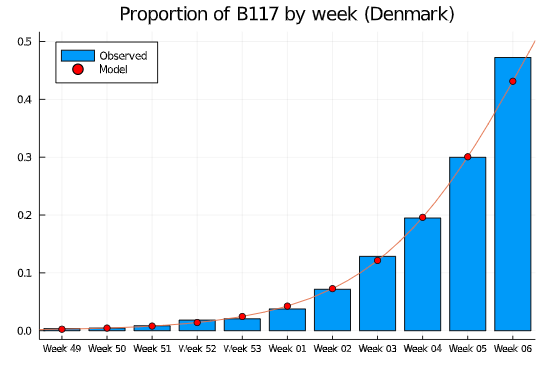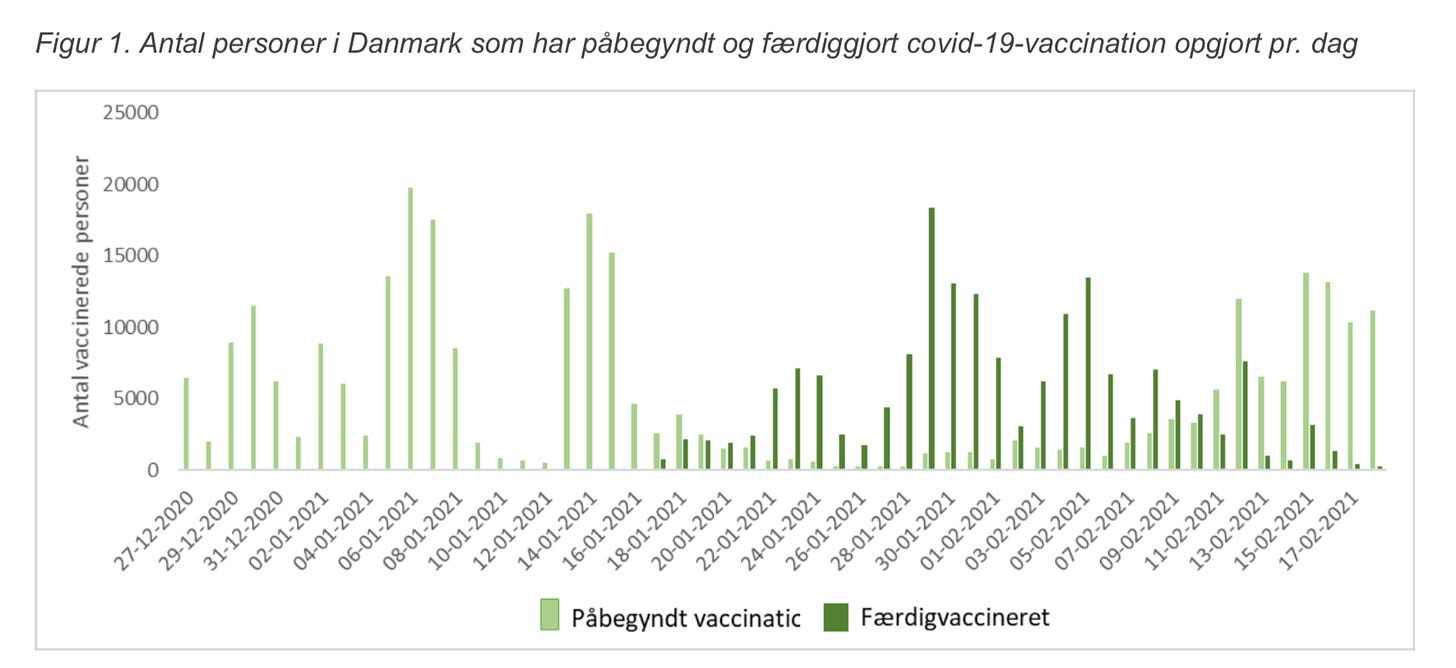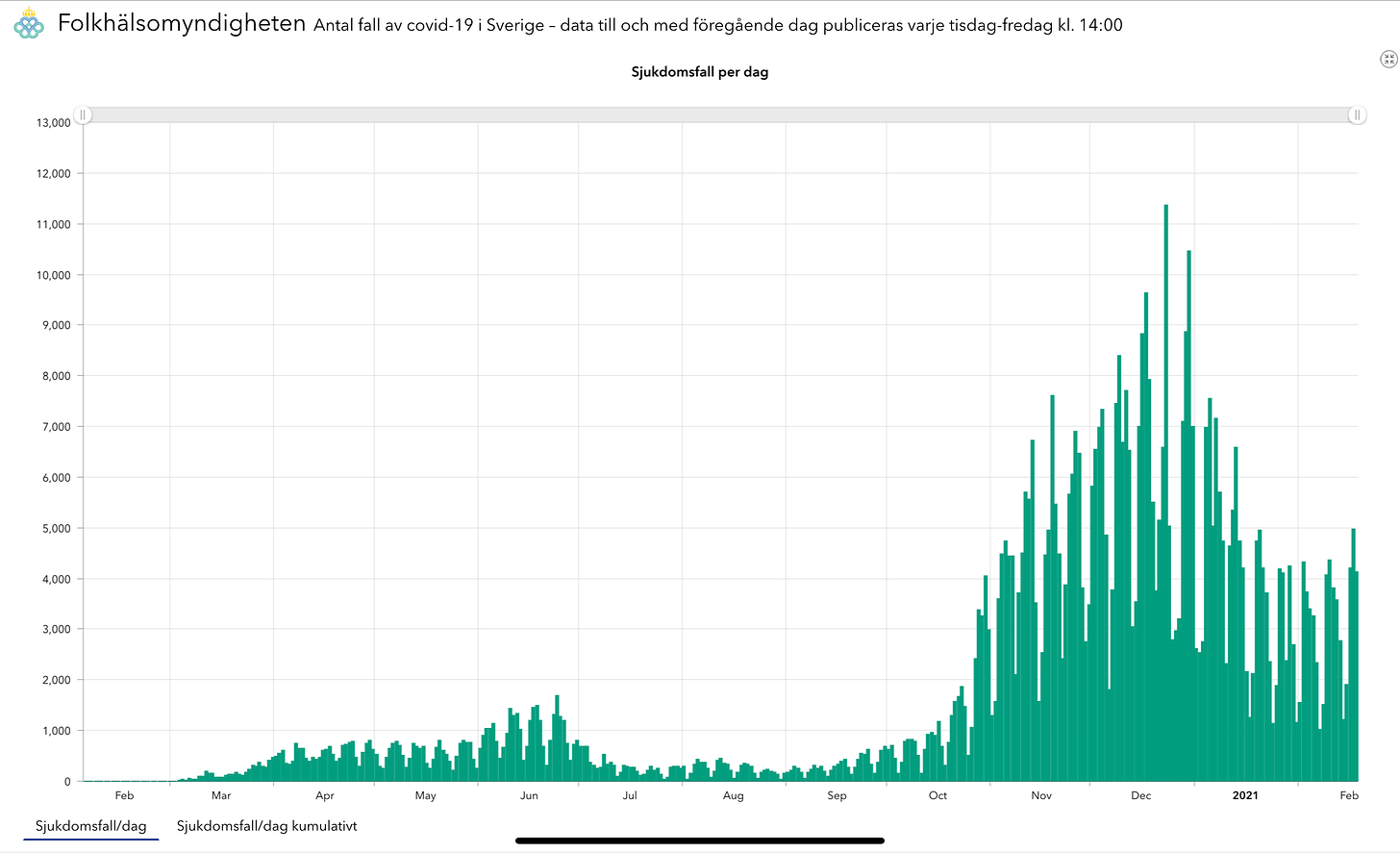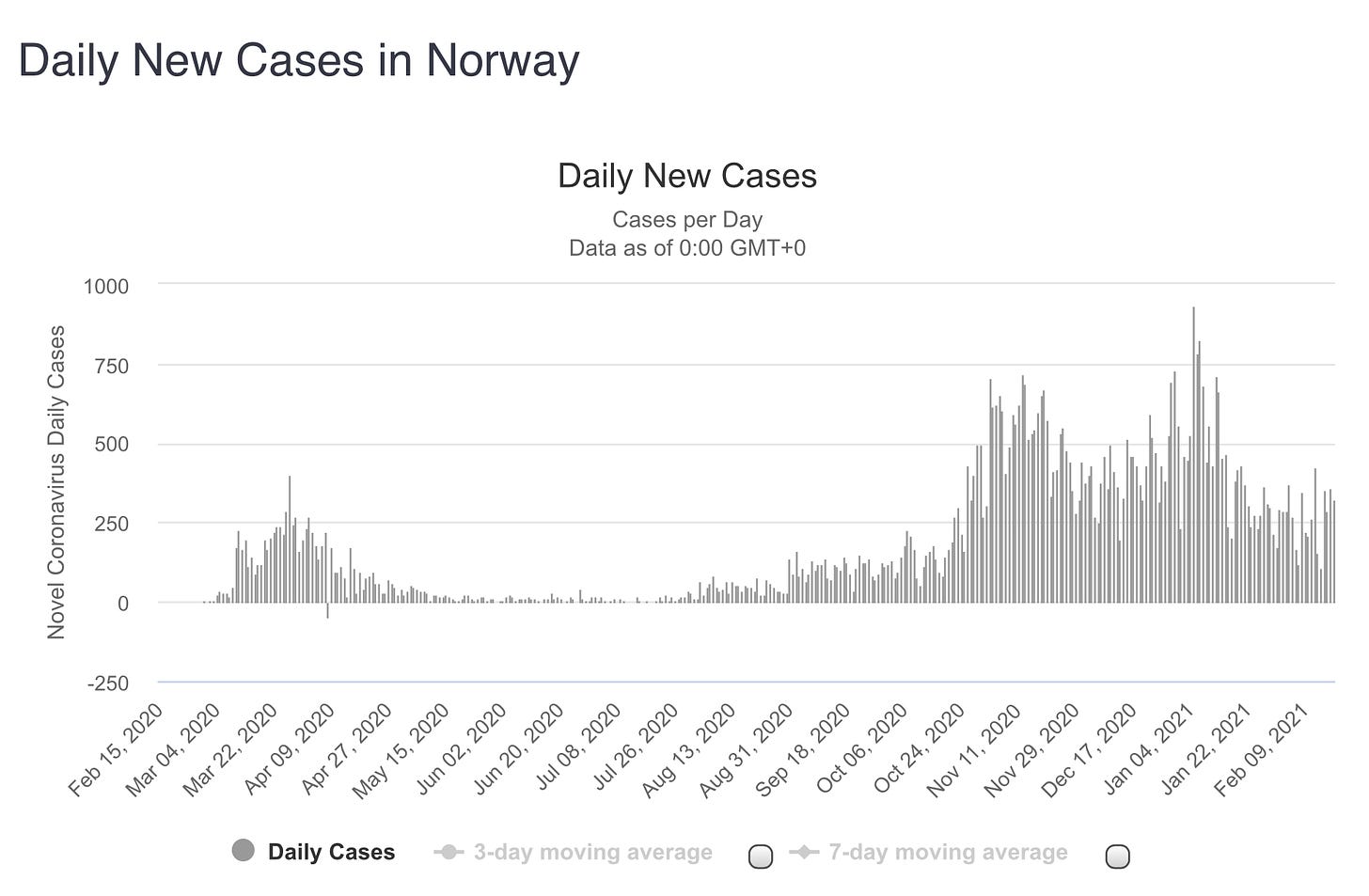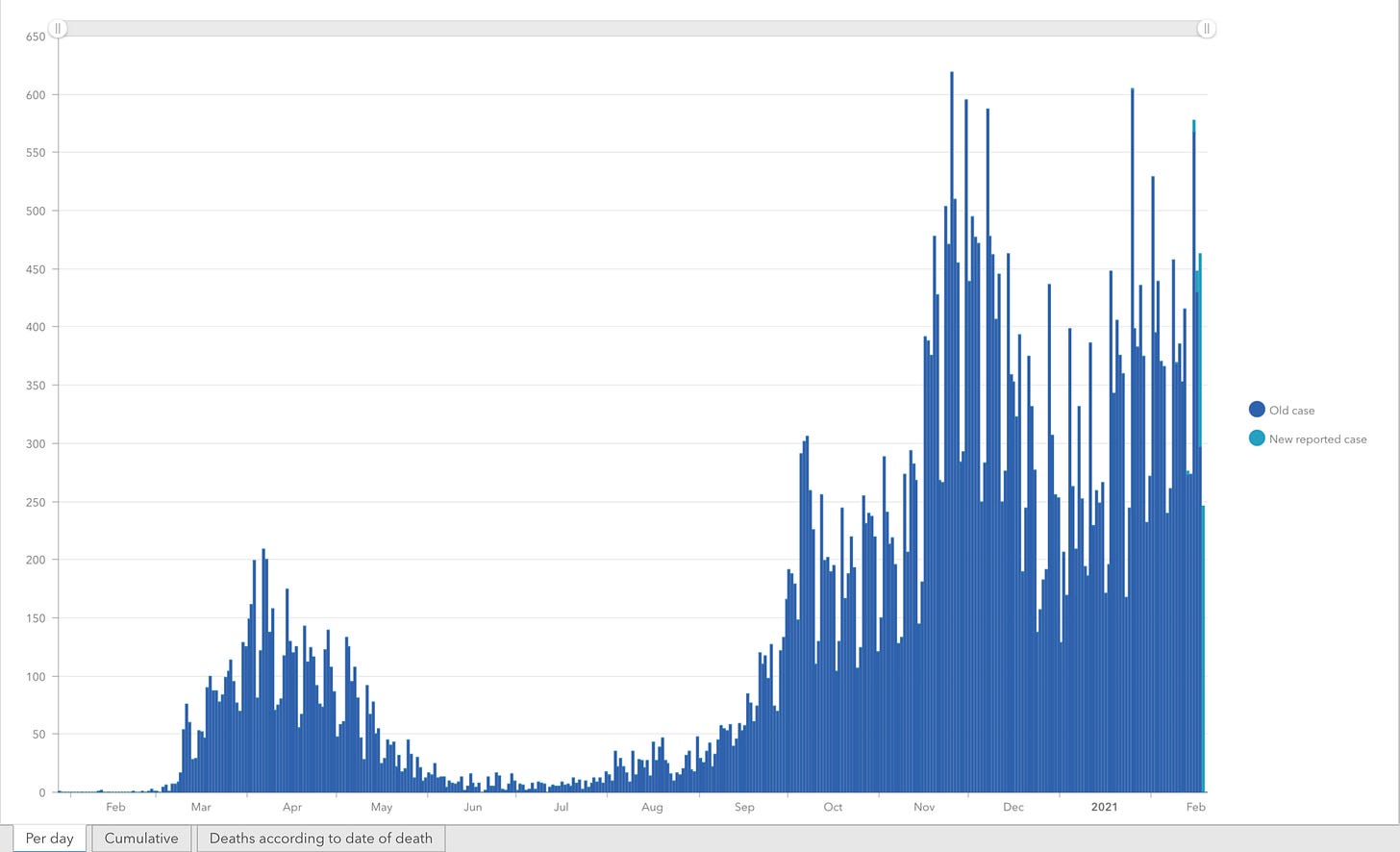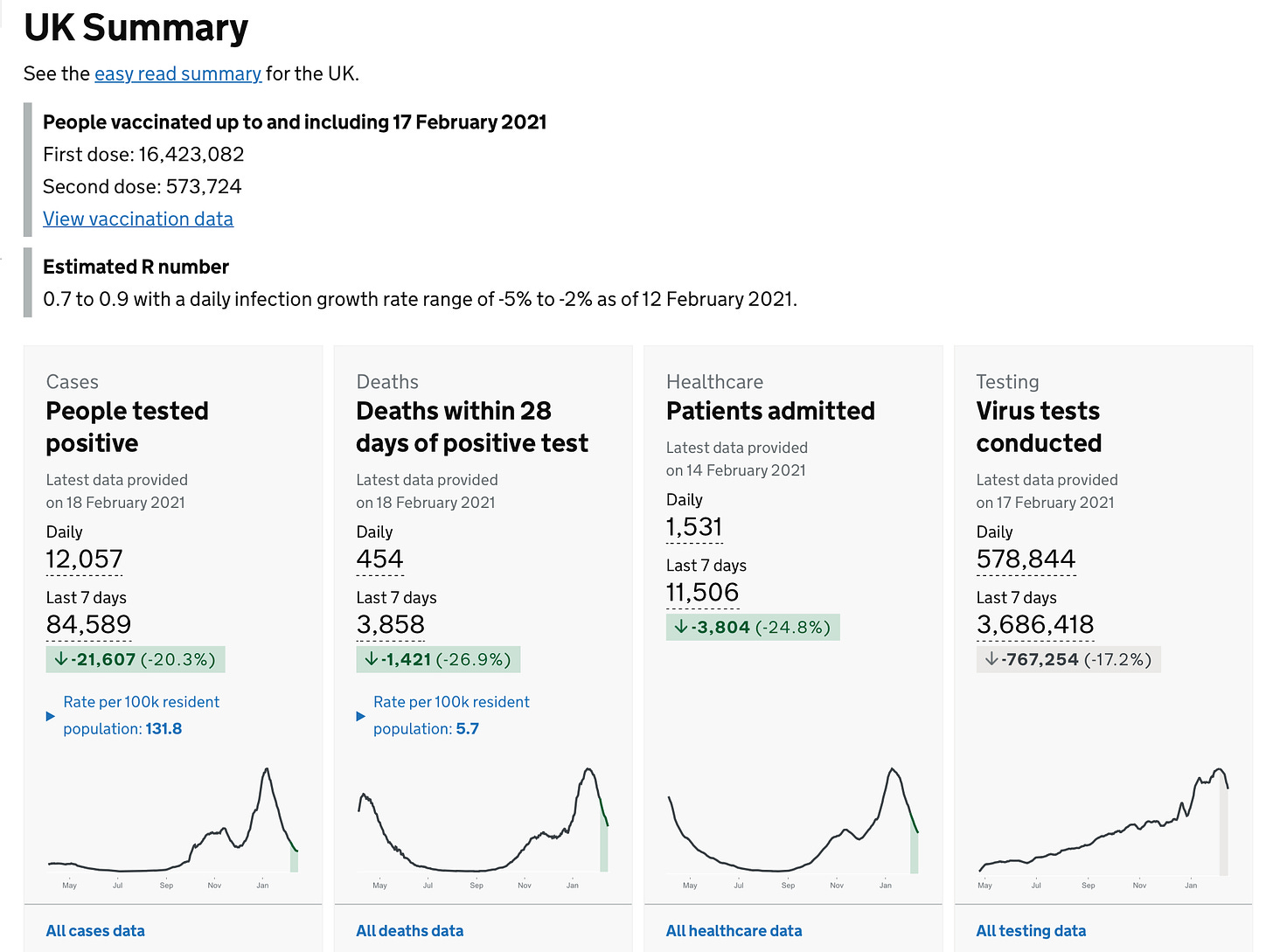Denmark closes some schools and tightens border controls.
U.K. variant spreading faster than projected.
🇩🇰
Danish authorities are “intensifying” border controls with Germany.
Just across the border in Flensburg, Germany corona infections have skyrocketed.
Today the Danish justice ministry announced it was imposing “far reaching restrictions.”
Denmark’s Justice Minister Nick Hækkerup says “based on the information about the situation in Flensburg, we on the Danish side need to react to strengthen the efforts against potential new chains of infection.” He adds the hope is the border restrictions will be temporary but also warned “we are constantly following developments and will adapt the efforts and restrictions further if necessary.”
As of midnight on Saturday, police will close a number of smaller border crossings into Germany and tighten border crossing checks on all others. Denmark already requires a negative corona test no more than 72 hours old to enter the country from Germany.
——
All schools and daycares in Kolding have been closed until at least February 28th. The municipality is seeing the highest infection numbers in the country. The U.K. variant is being blamed for the infection explosion including among young children, a new and concerning development.
Health Minister Magnus Heunicke said the situation is serious “The high infection rates must go down again, and as soon as possible. As the infection is mainly concentrated in a number of schools and daycare institutions, it is therefore necessary to send the youngest pupils home again.”
In order to try to bring down infection numbers the Southern Denmark Health Region will try and test everyone in Kolding, some 60,000 people. Everyone over the age of 12 is being asked to get tested and work is being done to be able to test children two years old and up with their parents permission. The health authority says it is adding extra testing capacity with an additional 10,000 tests per day.
——
The UK variant surpassed projections across the country in week six making up 47% of sequenced positive test results instead of the projected 43%. The Mid-Jutland region saw variant infections increase from 24% to 62% raising fears of some kind of super spreader event.
——
Denmark is reporting 552 COVID infections and eight more coronavirus deaths in the last 24 hours.
COVID hospitalizations (264) continue to decline (-5) ICU numbers (51) also dropped (-6) as did ventilator (38) numbers (-2).
139,412 corona tests were done across the country yesterday. That equals a positivity percentage of 0.39%.
On the vaccination front to date there have been 285,408 1st doses (4.9% of population) and 173,623 2nd coronavirus vaccine doses (2.98% of population) administered.
Vaccine utilization is at 83.1%
——
The Staten Serum Institut says the number of infections from a new COVID variant has increased from 55 to 61. The variant called B1525 was first spotted about a week ago. The new variant has caused concern because it has the E484K mutation, called the escape mutation because it helps the virus evade the body’s defences. The 61 cases are spread across Metro Copenhagen, the surrounding island of Sjælland, and in Southern Denmark.
🇸🇪
Sweden has added 4,144 infections and suffered another 51 corona deaths.
To date in Sverige 398,092 1st dose (4.9% of pop) and 187,751 2nd COVID vaccine doses (2.3% of pop) have been administered.
Radio Sweden is reporting that the Public Health Agency is now recommending all Swedish citizens returning from a stay abroad be tested immediately for corona. People living in Stockholm can now get tested at Arlanda Airport when they land and the local health region says it will test all citizens regardless whether they live in Stockholm or not. Each positive test will also be sequenced to check for COVID variants.
🇮🇸
Norway has added 396 infections since yesterday’s update and had no new virus deaths.
Total to date infections in Norway have reached 68,000.
COVID hospitalizations (77) are up (+5) those on a ventilator (17) also inched up (+2).
To date 278,379 1st dose (5.19% of pop) and 93,251 2nd vaccine doses (1.74% of pop) have been administered.
Norway is relaxing some of its corona restrictions as of next week. They include allowing students to return to colleges and universities albeit with strict infection control measures. It is also allowing some sporting and concert activities to resume with strict caps on the number of spectators.
🇫🇮
Finland has registered 444 infections and one corona death since yesterday’s update.
COVID hospitalizations (117) are up (+7) while those in an ICU (24) is down (-3).
To date 261,968 1st dose and 71,409 2nd vaccine doses have been administered.
Finnish health authorities have now confirmed 524 variant infections. Most of them are the U.K. variant along with a handful of South African variant infections. Most concerning is a single case of the Brazilian P1 variant.
United Kingdom
The U.K. logged 12,057 new infections while suffering another 454 corona deaths yesterday. On the whole, numbers continue to fall.
Great Britain is approaching 17-million first vaccine doses administered. Second dose inoculations continue at a snail’s pace.
Europe
While the overall situation continues to improve across Europe and hard hit Spain and Portugal continue to claw their way out of the latest wave of infections, a handful of other countries are emerging as an area of concern.
Infections are trending back up in the Czech Republic and neighboring Slovakia is also seeing rising infections. Nearby Hungary also saw infections jump up yesterday. Austria is also showing signs of infections beginning to trend back upward.
Greece also continues to be a COVID concern.
Pfizer/BioNTech
Pfizer is beginning new vaccine trials on two fronts. One will evaluate the vaccine and any impacts on pregnant women and whether it is safe for the babies they are carrying. The other trial will focus on children 5 to 11 years old. Trials are already underway for children aged 12 to 15 years old. Currently there is no vaccine approved for use for anyone under the age of 16. This is an important trial as it is much harder to reach vaccine induced herd immunity if kids under the age of 16 cannot be vaccinated.
AstraZeneca
It may be more beneficial to take the two AstraZeneca vaccine doses farther apart. Four new vaccine studies published in The Lancet have found that vaccine effectiveness was much higher, 81% compared to 55%, for those who had the two doses more than 12 weeks apart compared to six weeks or less. The studies were conducted in the United Kingdom, Brazil and South Africa.




